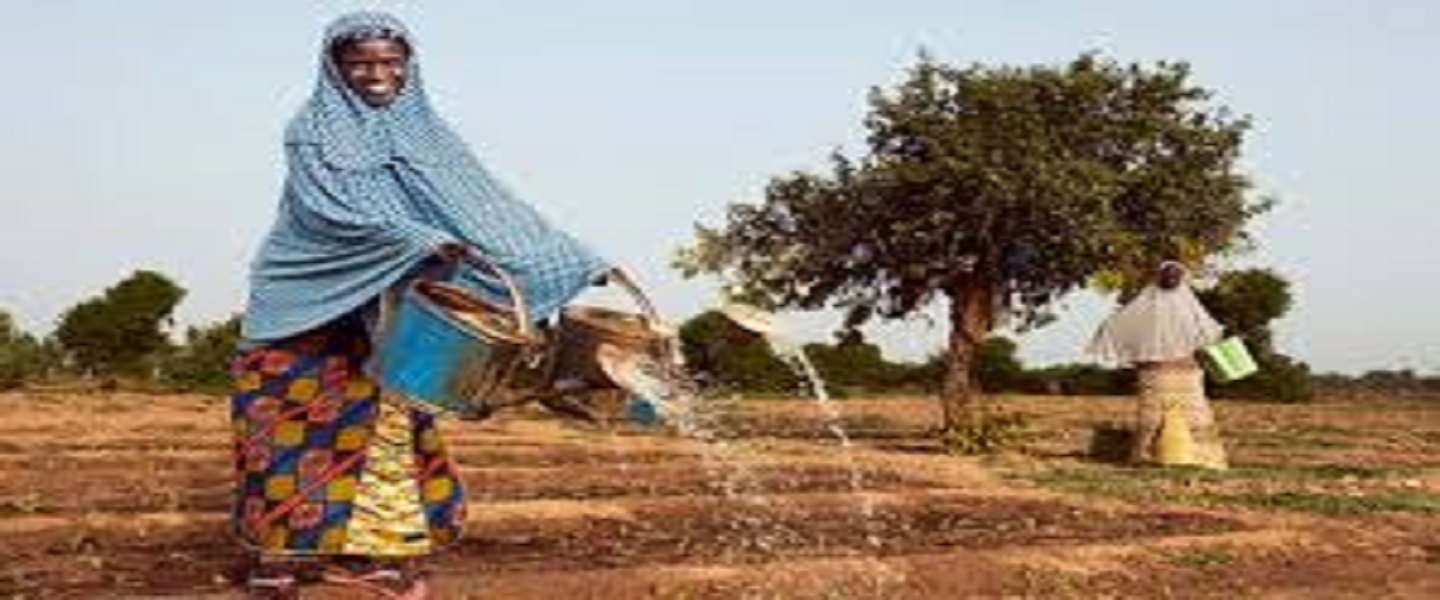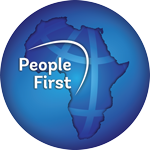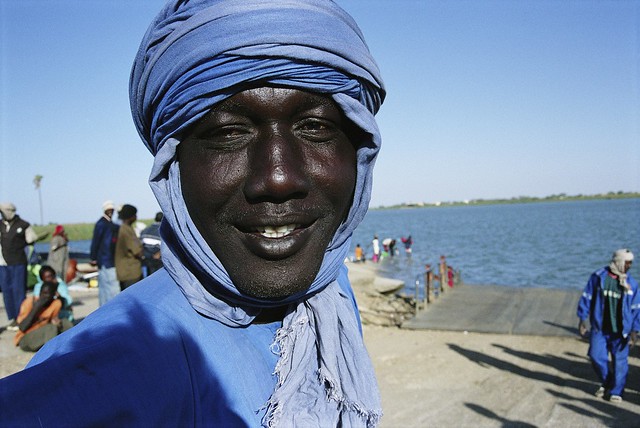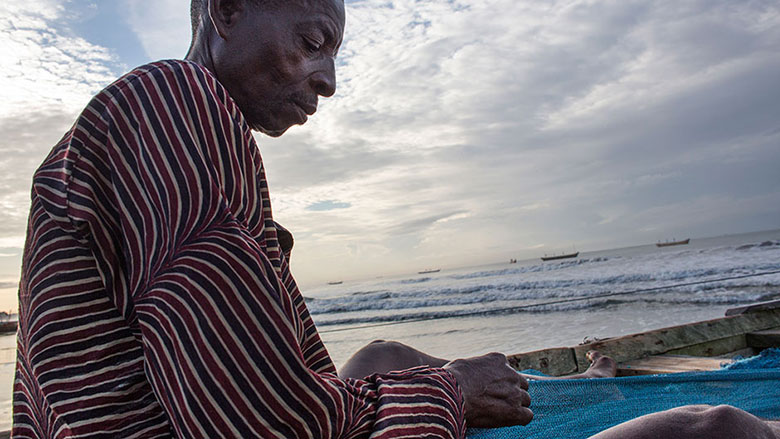Education and Social Protection
Under the CPF’s human capital focus area (“accelerating human capital for inclusive, services-led growth”), the portfolio has prioritized preparing the workforce for an economy based on the provision of high-quality services, while promoting social protection and productive inclusion.
The multi-sectoral Human Capital Project – HCP (P175828), approved in April 2022, builds on results and lessons from past investments in the education and social protection sectors. The HCP aims to specifically support youth and women, and particularly those from poor and vulnerable households, by improving access to basic services and labor market-relevant training. To date:
- Over 30,000 students now use the new secondary education curriculum;
- Over 1,700 youth are enrolled in professional training courses aligned with the needs of the private sector;
- Over 2,100 vulnerable households have benefited from the productive inclusion program, gaining access to training, and start-up grants;
- The rehabilitation of 114 houses in Praia improved access to basic services such as water, electricity, and sanitation;
- 321 children now access quality childcare services.
Health
Thanks to the control of the pandemic and the high vaccination rates, the COVID-19 Emergency Response Project was restructured in June 2023, and the funds will strengthen the health system's capacity to manage public health emergencies and other health challenges, including noncommunicable diseases. Activities are being implemented towards the improvement of the population’s access to health care, including:
- Construction of health centers;
- Technical assistance for a hospital public-private partnership feasibility study;
- Purchase of a CT scanner;
- Development of the country’s first digital health strategy.
Since March 2024, Cabo Verde has been benefiting from the first phase of the Health Security Program in Western and Central Africa, co-financed by the Pandemic Fund, with an overall envelope of $28.74 million.
Economy resilience and diversification
Under the CPF’s macroeconomic and private sector development focus area, the World Bank portfolio has supported improvements to fiscal and macroeconomic resilience, promoted enabling conditions for private sector-led growth, and worked to improve the competitiveness of tourism, the main economic sector.
The flagship $75 million Resilient Tourism and Blue Economy Development Project (P176981), approved in June of 2022 and ongoing until June 2028, supports diversified private sector development within and beyond tourism, including the blue economy. It adopts a spatial approach and builds on the Government of Cabo Verde’s Tourism Operational Plan spanning (2022–2026) as well as the Government of Cabo Verde’s Blue Economy National Investment Plan.
Achievements include:
- Rehabilitation of piers and multipurpose quays for recreational nautical tourism and fishery use;
- Rehabilitation of fish markets;
- Rehabilitation of hiking trails and historical heritage sites;
- Improvements in key tourism-related transport accessibility infrastructure.
The Access to Finance for Micro, Small, and Medium Enterprises (MSMEs) Project (P163015) in the amount of $25 million, concluded in June 2023, provided critical support to develop the financial infrastructure in Cabo Verde and expand access to finance for MSMEs. The support to the creation of the first partial credit guarantee company in Cabo Verde was instrumental in helping new and existing MSMEs maintain and access credit. Complementary investments included:
- A new credit registry to improve credit information;
- A new equity fund to help local MSMEs access longer term capital.
At project closing:
- Over 2,000 MSMEs benefited from credit guarantees (exceeding the target of 1,800);
- Over $45 million in credit was guaranteed (surpassing the target of $35 million.
Transport and Urban
The Improving Connectivity and Urban Infrastructure in Cabo Verde project (P178644), signed on November, 2023, aims to enhance access to climate-resilient transport and urban infrastructure with a total financing of $40 million. It includes the rehabilitation of roads in several islands, such as Fundura – Ribeira da Barca and Pingo Chuva – Saltos – Arribada in Santiago Island, or the construction of a penetration road in Ribeira Caibros on Santo Antão Island. It also includes the upgrading of urban centers, waterfronts, and key urban areas (such as Joao Teves, Achada Igreja, Mosteiros, Tarrafal de São Nicolau), as well as technical assistance for a variety of connectivity and planning items, such as the development of detailed urban plans and the National Housing Information System.
Statistics
The HISWA project is a regional initiative that includes seven West African countries, including Cabo Verde, and two regional organizations (African Union and ECOWAS). Its main goal is to improve how these countries collect and use official statistics, making them more reliable and in line with international standards. For Cabo Verde, the $15 million project started in September 2020, and will run until December 2025. So far, the project has made good progress in improving key statistical results by supporting:
- The harmonization, data collection, quality improvement, dissemination and use of core social and economic statistics.
- Country-specific activities aiming at improving the administrative data system.
Energy
Cabo Verde has achieved 97% electricity access but remains heavily dependent on imported fossil fuels (80%) and suffers high system losses (24% in 2023). To address these issues and reduce fiscal risks, the government has moved forward with the restructuring and privatization of the national utilities ELECTRA and AEB (Águas e Energia de Boa Vista).
The Renewable Energy and Improved Utility Performance Project (REIUP) aims to:
- Improve transparency in the sector;
- Support the energy transition;
- Lower service costs by reducing generation costs and non-technical losses;
- Attract private investment and expertise;
- Enhance service quality.
As part of this restructuring, three new entities have been created and became operational on May 31, 2024:
- EPEC – responsible for thermal power generation;
- ONSEC – manages energy purchasing, transmission, and dispatch;
- EDEC – handles electricity distribution and retail.
Under REIUP, the government is developing solar and battery energy storage system (BESS) projects on the islands of Fogo, Santo Antão, Maio, São Nicolau, and Brava. These include:
- 4.65 MWp of solar PV (to be operational by May 2025);
- 18 MWh of storage (phased until March 2026).
In addition:
Rooftop solar PV systems and energy efficiency upgrades are being installed in 32 public health facilities, totaling 616 kWp, with full completion expected by June 2025.
Complementing these efforts, the World Bank is providing technical assistance in collaboration with the National Directorate of Industry, Commerce and Energy (DNICE). This includes:
- Identifying solar and wind projects for near-term tenders;
- Assessing strategies to attract private sector participation;
- Maximizing the socio-economic benefits of renewable energy development.
Digital
The Digital Cabo Verde Project (DCVP) was approved with a $20 million IDA investment and aims to strengthen Cabo Verde’s digital competitiveness and improve digital public services by enhancing the legal framework, connectivity, digital skills, and entrepreneurship.
Key achievements include:
- Cabo Verde advanced its digital framework with laws on e-transactions, digital signatures, and infrastructure sharing;
- Organizations like “Núcleo Operacional para a Sociedade de Informação – NOSi” and programs like “Web labs” training 14,000 students in digital skills;
- The Consular Portal marked a key milestone, streamlining diaspora services, cutting processing times, and boosting e-payments.
To build on these successes, an Additional Financing (AF) of $20 million is being prepared. The AF will scale up digital services, consolidating them into a single transactional platform to enhance efficiency, accessibility, and transparency.
Last Updated: Apr 14, 2025







